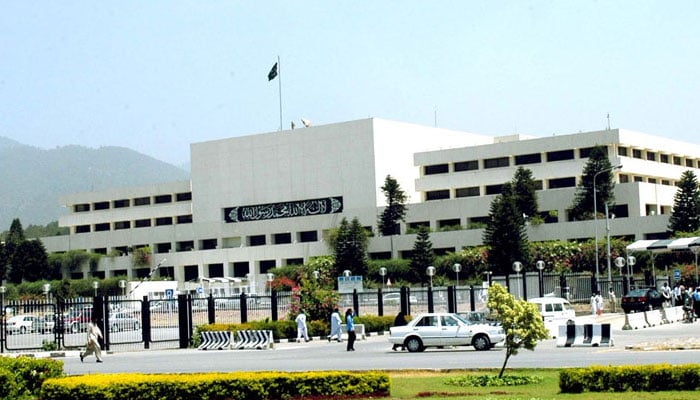The article reports on the political situation in Pakistan, specifically the actions taken by the ruling coalition government and the opposition party, Pakistan Tehreek-e-Insaf (PTI). The article explains that the National Assembly Speaker, Raja Pervaiz Ashraf, has changed the schedule of the joint session of parliament to convene on March 22 instead of next month, in order to “take important decisions” to enforce the state’s authority. The reason for this sudden meeting was not given, but state-run media outlets have reported that the ruling coalition has called for parliament to take action to ensure the writ of the state is enforced.
The article then goes on to explain that the PTI, led by Imran Khan, has been protesting and demanding a new election since being ousted from power in 2022. The ruling coalition, led by Prime Minister Shehbaz Sharif, has rejected Khan’s demands and has labeled the PTI as a “gang of militants” that is envious of the state. PTI supporters have clashed with police several times over recent days, as authorities try to force Khan to appear in court in connection with various cases brought against him.
Despite the political instability in the country, PM Shehbaz has stated that the election will be held as scheduled later this year. The clashes between Khan’s supporters and security forces have brought a new round of political instability to the country, which is already facing a crippling economic crisis. The police have arrested hundreds of Khan’s supporters in recent days in response to the clashes.
Khan appeared before the Lahore High Court on Tuesday to apply for protective bail in fresh cases against him. He is also appearing before a bench hearing a case he has filed against the police for raiding his home, which he claims was in violation of court orders granting him protective bail last week. The article suggests that the political situation in Pakistan remains tense and that the joint session of parliament on March 22 will be closely watched by all stakeholders.
